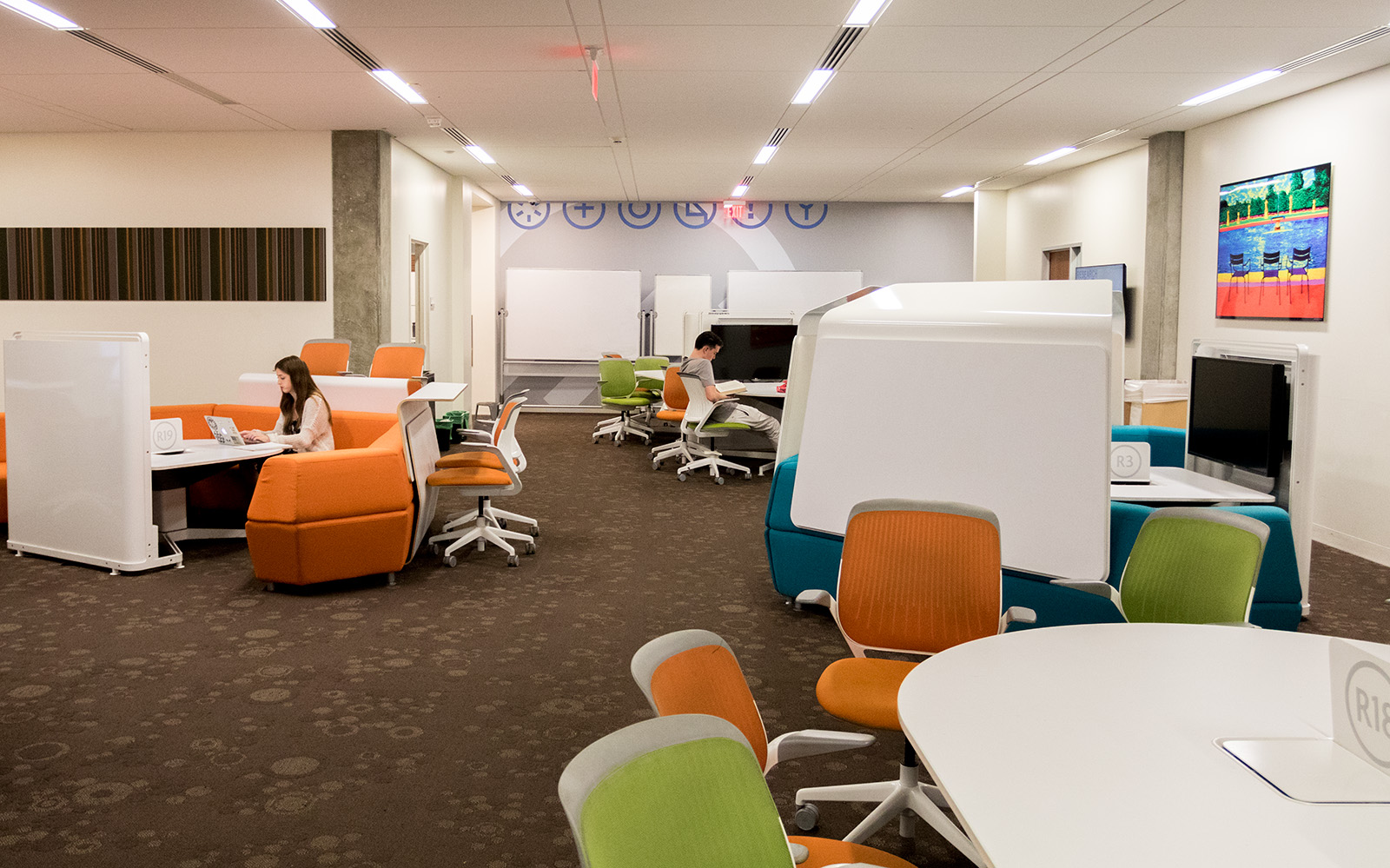Mariah Furtek: CCLE course webpages should include forum for creating study groups

UCLA is a big place, and forming study groups for lecture-based courses – especially those with large class sizes – can be a struggle. UCLA’s CCLE website team should include a study group forum on the site to make it easier for students to coordinate group study sessions. (Amy Dixon/Assistant Photo editor)
By Mariah Furtek
Nov. 14, 2017 10:29 p.m.
The sky outside your dorm window darkens and the words on the textbook page begin to swim together. It’s midterm season, but you can feel comprehension slipping away – you need a study buddy even more than your next dose of caffeine.
Studying in groups inspires active engagement with course material, promoting a deeper understanding of the course content. While this can result in better test scores, more importantly, it can also lead to better comprehension of the subject matter, as evidenced by some scientific studies.
Some students, though, lack the opportunity to form these GPA-saving study groups because they do not feel confident or familiar enough with their classmates to create study groups.
Existing chat forums on UCLA’s course websites don’t seem to help much either. The CCLE platform has two forums: one for instructor announcements and another for posts by both students and instructors. Students don’t typically use the forums to form study groups, however. As of now, student posts in class discussion forums are so varied in focus that users can get frustrated and ignore all discussion notifications.
“Most of the time, I don’t check the discussion forum because the comments there are so scattered – there isn’t a single purpose,” said Annie Goldsmith, a second-year anthropology student.
CCLE should incorporate an additional forum into its site designated solely for the formation of study groups by students.
Users could mute notifications for this forum if uninterested in forming a study group. This clarification of the forum’s purpose and the added ability to opt out of conversations deemed irrelevant by users would make CCLE class sites more useful.
Students like Goldsmith may find themselves immediately deleting discussion notifications from CCLE to prevent their inboxes from being overwhelmed by their classmates’ highly specific and often uninformed questions.
It might seem as though these conversations can be taken offline, but it is even more difficult to reach out to peers in person. In courses that are primarily lecture-based, for example, the majority of in-class conversations consist of hushed whispers between a few student during lulls in the presentation. It’s difficult to imagine this kind of communication would allow students to develop the kind of relationships and connections required to form study groups.
“If I don’t have a friend in the class and there’s no discussion where I can meet people, I end up studying alone, which isn’t ideal,” Goldsmith said.
Madeleine Gates, a second-year applied mathematics student, said she finds study groups help her better understand course material.
“I find study groups helpful, especially right before tests once I have already done some studying by myself,” Gates said. “It is good to go over topics I find confusing with other students who understand them better.”
Separating the existing discussion forum into two groups would create an open environment conducive to study group formation and make CCLE’s existing forums more user-friendly by decluttering them.
Thankfully, CCLE administrators are open to adapting their system. Users can request changes like this through the “Need Help?” link on the course page, in person at the CCLE office, by email or over the phone.
A CCLE staff member would then work with the user requesting the change to come up with a user story, or a description of the functionality of the proposed feature, said Nick Thompson, coordinator of CCLE.
After that, CCLE staff would assess the demand for the new feature, the technical support required to implement it and whether the proposed functionality already exists within the site, Thompson said. He added CCLE could integrate a study group forum into the site if there were campuswide support – including from instructors.
And some instructors seem open to such a feature.
“Students should absolutely have a place where they feel comfortable communicating with each other to form groups,” said Chelsey Smith, a teaching assistant in the Spanish and Portuguese department.
And it’s clear some students don’t feel too comfortable forming these groups with the current setup.
“For me, the best way to study is to talk things through with other people, so group study is essential,” Goldsmith said. “But I am not that outgoing of a person, so I don’t feel comfortable randomly posting in the discussion forum to ask classmates if they are interested in forming a study group.”
While it might seem that students could simply form study groups during discussion section, some classes are based on lecture only. Discussion sections are also often too large to foster the kind of familiarity between students necessary to form study groups. A CCLE study group forum could serve as a medium for these interactions.
Students already find themselves drowning by week seven – wading through readings, swimming in assignments, just trying to doggy-paddle themselves to the finals finish line. CCLE should throw students a life vest.


